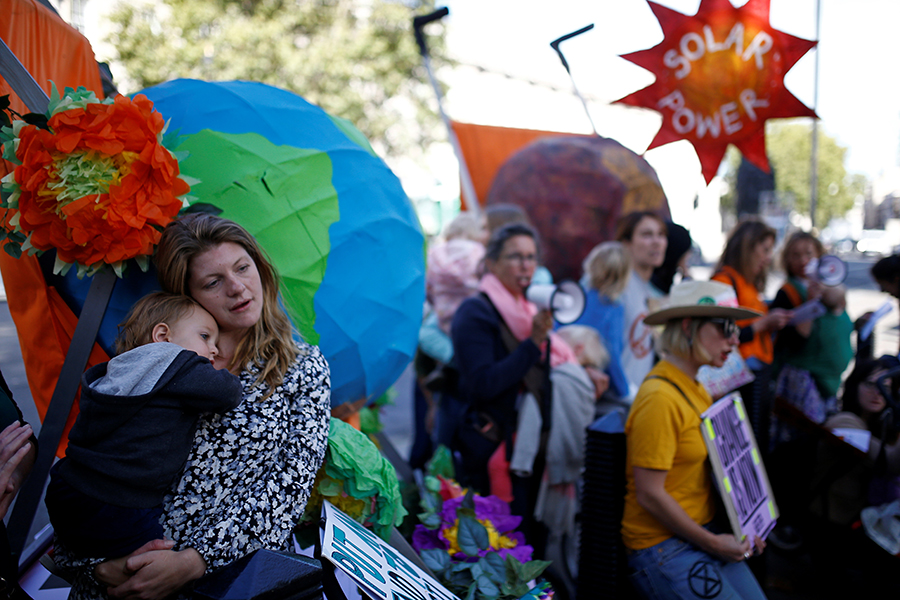Cut emissions to avert catastrophic sea-level rise: UN climate report
Updated: 2019-09-25 17:12

NEW YORK - Scientists behind a landmark study of the links between oceans, glaciers, ice caps and the climate delivered a stark warning to the world on Wednesday: slash emissions or watch cities vanish under rising seas, rivers run dry and marine life collapse.
Days after millions of young people demanded an end to the fossil fuel era at protests around the globe, a new report by a UN-backed panel of experts found that radical action may yet avert some of the worst possible outcomes of global warming.
But the study was clear that allowing carbon emissions to continue their upward path would upset the balance of the great geophysical systems governing oceans and the frozen regions of the Earth so profoundly that nobody would escape untouched.
"Everybody in the world will be affected by the changes we are seeing," Michael Meredith, an oceanographer with the British Antarctic Survey and one of the report's authors, told Reuters.
"The key thing that's coming out of the report is that we have a choice. The future isn't set in stone," he said.
Finalised on Tuesday in a last 27-hour session of talks in Monaco between authors and representatives of governments, the report was the culmination of two years of work by the UN-backed Intergovernmental Panel on Climate Change (IPCC).
Compiled by more than 100 authors who crunched 7,000 academic papers, the study documented the implications of warming oceans, fast-melting ice sheets in Greenland and Antarctica and shrinking glaciers for more than 1.3 billion people living in low-lying or high mountain regions.
The report projects that sea levels could rise by one metre (3.3 ft) by 2100 - ten times the rate in the 20th century - if emissions keep climbing. Looking further forward, the rise could exceed five metres by 2300.
The IPCC galvanised global concern over climate change in October when it publishing a report that showed the world would need to halve emissions over the next decade to stand a chance of meeting the temperature goals in the 2015 Paris Agreement.
Following a subsequent report published last month on land use and farming, the IPCC Special Report on the Oceans and Cryosphere -- or 'frozen world' -- was the final piece in a scientific jigsaw revealing the global sweep of climate impacts.
Released two days after a one-day UN climate summit in New York closed with scant signs of transformative action by major economies, the latest report underscored the gulf between warnings from science and the policies of most governments.
"If we aren't able to have ambitious action that enables us to reduce greenhouse gas emissions, we will have these high-end impacts," said Nerilie Abram, a paleoclimatologist at the Australian National University, and an author of the study. "We're at a point where we have a decision to make," she said.
Reuters
























